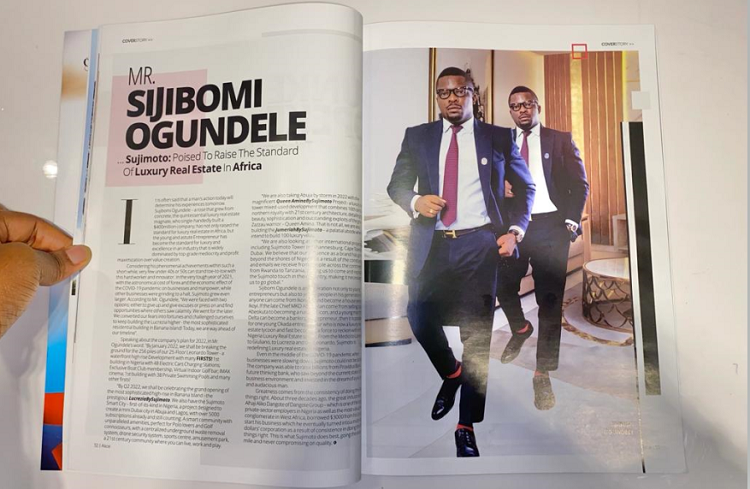Changing the nation…one mind at a time

In his bestselling book, “How Will You Measure Your Life?” Clay Christensen, a professor of Business Administration at the Harvard Business School, tried to answer the question of why businesses including big corporations fail. He looked at why some high-achievers ended up unfulfilled; or how they found themselves in unfamiliar paths and ended up being unhappy.
He argued that this is a result of what he termed resource allocation problem which happens when the way and manner we allocate resources to our needs undermines our intended strategy and eventually its outcome. Clay’s main interest in this book, was to help readers focus on what actually matters or will matter to them in the long term after succeeding in short-term, tangible achievements – business and career. The things that will eventually matter would be the quality of relationships we have with our family, close friends and associates. This is what our long-term happiness will depend on. While succeeding in business and career are important, he points out that we should be more conscious of how we use our advancements in those areas to make an impact on the lives of people.
This is a way that ultimately, many people will want to measure their lives. History has shown us this with many accomplished persons, especially in business, who during their twilight years, turn to philanthropy as a source of joy and happiness.
I remember recently seeing a beautiful photo of my retired secondary school economics teacher with one of his childhood friends who paid him a visit. The expressions on their faces particularly that of my teacher was one of inexplicable joy – such that we never saw on his face throughout our years in school. At his age, what brought him happiness was not how many years he served as an economics teacher, or the positions he attained, or the money he accumulated. What mattered to him at that time and what brought him happiness was the relationships he had built up over the years with his family, friends, students and loved ones.
The main resource that is key in achieving happiness is time, and how we invest it is what makes the difference in helping us create long-term happiness. This seems to be in direct conflict with other demands on this resource, especially time for our businesses and careers. How do we remain competitive and profitable and still be happy at the end of the day? This is the dilemma.
I have tried to share a few thoughts on the two most important values that have helped me to pursue happiness and competitiveness at the same time over the years.
Sincerity
This is about being truthful to other people and myself. In relation to people – in and out of business, I have tried as much as it is possible for me to be sincere about my intentions, and my purposes. I try as much as possible not to create a burden of expecting a second chance to be sincere because I was insincere the first time. Sometimes, being sincere can hurt, especially if it leads to us not profiting or to losing something.
However, in the long run, when I sit back, I feel a great sense of happiness that I was able to be sincere in diverse situations. Our families, friends, loved ones and business associates should be able to count on and pride in us as honest people. Recently, I was discussing a UK university-led collaborative research opportunity with a company based there. During the discussion, the UK partner emphasized that the needed Nigerian partner must be a firm that already had years of proven/demonstrable competence in an area that is not my firm’s core. In an email response, later on, I replied that we were not yet strong in the area that was required. The UK partner wrote back to thank me for my honesty and said he looked forward to working with my firm in the near future.
Mere hours after the initial response, he wrote back, asking me for my views that may be useful for the same research I had turned down. After responding, he decided to have my firm join the consortium to provide expertise in an area we are strong in. By being sincere, I was able to be happy with myself, and win the trust of a business partner, which increased my competitiveness.
Emotional intelligence
We are always surrounded by people, and will always be. Our ability to identify and manage our emotions and that of people around us, especially our loved ones and the people we work and do business with, is important. With emotional intelligence, I have been able to live and work with very difficult personalities that other people have not been successful in living and working with. Interestingly, being emotionally intelligent and responding to the emotional needs of other people is like observing the golden rule of doing unto others what you would like them to do unto you. It is about being genuinely open and available to others and to yourself which opens us up to deep understanding about other people and their ways.
The way we communicate helps to highlight this, and if people around us know that we are sincere – they know that the empathy and concern we show are genuine and not aimed at mocking, belittling or exploiting. Applying emotional intelligence, I have been able to gain the trust, confidence and love of several people that I have come across and worked with. This has helped me build relationships that keep me happy in times when I am down. These are relationships I have also been able to tap into for competitiveness in my career and business.
So, as we continue to build our careers and businesses and attain short-term tangible achievements, we must not forget the long-term intangible achievements of happiness, which involves building healthy relationships with family, close friends, loved ones, and even business partners. This is undoubtedly the most important way that we will measure ourselves in many years to come.




